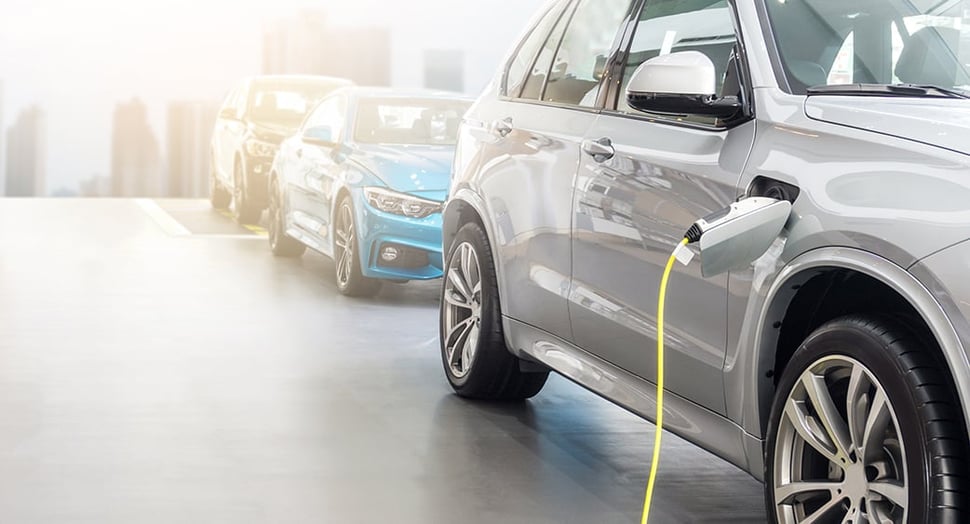 US EV charging infrastructure to significantly increase, with the nation on track to install 30 million new charging stations by 2030.
US EV charging infrastructure to significantly increase, with the nation on track to install 30 million new charging stations by 2030.
One of the most common reasons consumers opt for gas-fueled cars over electric vehicles is lack of charging infrastructure. More than one-third of respondents to an Autolist survey said this was their top reason for avoiding EVs.
It’s an understandable concern: Without access to a charging station, drivers have to take care in planning their trips so they don’t exceed the car’s range. To date, the U.S. has been slower than some countries in Asia and Europe to invest in infrastructure to support EV adoption.
Fortunately, a new report from research firm Wood Mackenzie showed that the nation is on track to install 30 million new charging stations by 2030, according to Green Car Reports.
US charging infrastructure in 2020
As of June 2020, there are 25,532 charging stations in the U.S. with more than 80,000 outlets, according to the U.S. Department of Energy’s Alternative Fuels Data Center. This is a big improvement over the 17,526 public charging locations that EV Adoption reported being available in 2017, though it’s still not enough to ease consumers’ worries.
In 2018, the U.S. saw more than 1 million registered EVs on the road, according to The Edison Electric Institute. If that number remained unchanged (which is unlikely), this brings the total number of charging stations per EV to 0.025. EEI reported that, by 2030, there may be as many as 18.7 million on the road, requiring a total of 9.6 million charging stations.
Not all states are equally prepared to support EV drivers. The only states with more than 1,000 charging stations, according to AFDC data, are:
- California: 6,408 charging stations.
- New York: 1,685.
- Florida: 1,409.
- Texas: 1,305.
- Washington: 1,013.
The top states for charging stations also have the highest number of EV registrations as of 2017, according to AFDC. Again, California leads the way with 179,600 EV registrations, just under half of all car registrations in the state. However, New York is the most prepared to support its EV population. With 16,600 registered EVs in the state, there are 0.15 stations per EV, the highest ratio among the leading states for both EV registrations and charging stations.
How charging infrastructure will increase in the next decade
Public policy has been the catalyst behind much of the growth in available EV charging stations thus far, Green Car Reports pointed out.
For example, seven states - none of which are in the top five for charging infrastructure - have exempt EV charging stations from public utility regulations, according to a report from The N.C. Clean Energy Technology Center. Other states’ goals regarding the reduction of emissions, especially from transportation, also pave the way for increased infrastructure.
Volkswagen, following its diesel emissions scandal, is required to help expand the U.S. charging network. The company is doing so by spending $2 billion on infrastructure through subsidiary company Electrify America, according to Consumer Reports.
As more infrastructure is needed, states and municipalities will need to consider how, exactly, they’ll update their public places to support EV drivers. Grants and rebate programs may help considerably, as will cooperation with private companies and other methods to encourage further development.
EV drivers may prefer home charging stations
While it’s important that EV drivers have access to public charging stations, the report from Wood Mackenzie pointed out where most drivers prefer to fuel their vehicles: at home.
The firm expects that, by 2030, North American homeowners will have 2 million more home charging stations than Chinese homeowners, and 3 million more than Europeans.
Having a home charging station can make up for a lack of infrastructure in the local area, especially if the car is primarily used to get around town for everyday errands and trips to work or school.
To learn about how to install the right charger for your vehicle at your home, reach out to Webasto. Our experts will help evaluate your space and install the charger for you.
SOURCES:
https://www.autolist.com/news-and-analysis/survey-electric-vehicles
https://afdc.energy.gov/fuels/electricity_locations.html#/analyze?fuel=ELEC&country=US
https://afdc.energy.gov/data/10962
https://www.consumerreports.org/hybrids-evs/electric-car-charging-network-is-expanding/

